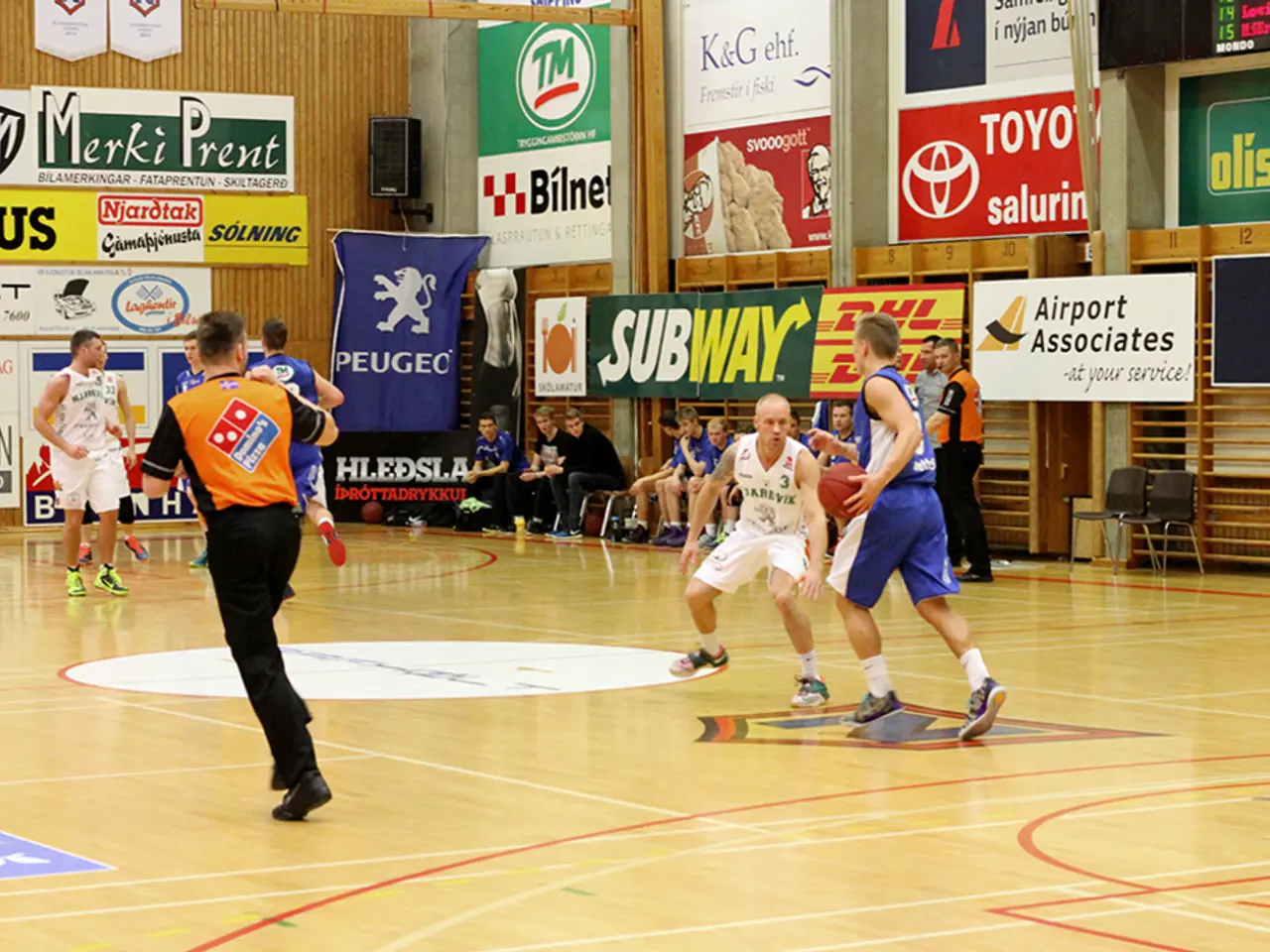Mastering Expertise in Basketball: A Comprehensive Guide
================================================================================
Basketball isn't just about individual skill; it's about team flow, spacing, and movement. A high basketball IQ means knowing when to cut, when to pop out, when to set screens, and how to create advantages for your teammates.
Mental toughness in basketball is built through repetition and persistence, playing through discomfort, taking constructive criticism, and showing up when no one else does. The fastest way to improve in basketball is to play against better players, and every coach in the world loves a player who can defend.
Strength matters in basketball; it keeps you from getting bullied under the rim, helps you absorb contact on drives, and lets you maintain body control in the air. Studying the game is important. Analyze games, watch different positions, watch film of yourself, and learn from the greats.
Getting good at basketball is about daily habits, relentless repetition, and a commitment to growth, not just as a player, but as a student of the game. Confidence in basketball comes from reps, not hype. It's about knowing you've taken a shot a thousand times in practice.
Being good means knowing what the defense is giving you and taking it without hesitation. Practicing with purpose is essential. Each practice should be intentional, working weaknesses, and turning them into weapons. No matter where you're starting from, you can get better and improve your shot, sharpen your handle, expand your IQ, and increase your confidence.
Basketball is a team sport. Be the player others trust by accepting feedback, correcting mistakes, and showing maturity. Being coachable is key in basketball. Coaches want players who listen, adjust, and contribute to team chemistry.
Basketball greatness is built in the quiet hours, such as empty gyms, late-night practices, and thousands of unseen repetitions. Basketball shape is different; it demands quick bursts, lateral movements, agility, endurance, and recovery. The goal in basketball is to be harder to knock off your spot, not just to be stronger.
Hustle is a skill in basketball. Effort is always in your control. Make it your signature. Real basketball greatness is not just about being tall or having a natural handle; it's about work ethic, repetition, focus, and developing your basketball mind.
A tight handle is crucial for basketball; it means being able to dribble comfortably with both hands, control the ball in traffic, and protect it under pressure. Good defense doesn't depend on talent; it's about effort, anticipation, and discipline.
Basketball rewards those who live in the details, work in silence, and show up consistently. To become a shooter, you need muscle memory, which comes from taking hundreds of shots every day. To improve your basketball skills, it's essential to build strong muscle memory by practicing consistently and deliberately every day, ideally 2-3 hours daily as Kobe Bryant did in his youth.
Confidence grows naturally from preparation and repetition, not from hype, so committing to daily focused practice directly enhances your confidence and performance. Key fundamentals to master in each core area are:
Dribbling: Establish a strong pivot foot to maintain balance and control, and practice reading the floor—not just the immediate defender—to improve decision-making while dribbling. Constantly work on ball touches to activate muscle memory and increase control.
Shooting: Repetition is crucial. Work on form shooting daily, ensuring consistent mechanics—focus on foot placement, follow-through, and balance. Break your shooting practice into multiple sessions if possible to maximize quality touches.
Defense: Develop quick footwork and anticipation by practicing defensive slides and staying low in an athletic stance. Learn to read the opponent’s body language and positioning to react faster. Mental focus on team defensive schemes is vital too.
Basketball Mind / Understanding Team Dynamics: Cultivate court vision by reading the entire floor, not just immediate opponents, to make smarter passes and plays. Study plays, communicate constantly with teammates, and adapt quickly during games based on your coach’s strategy. Mental reps—visualizing situations and decision-making—also sharpen your basketball IQ.
Overall, the pillars of improvement include relentless repetition to build muscle memory, focused practice sessions that push your limits, and daily mental engagement with the game’s tactics and flow. Combining these through a well-structured training journal or program can accelerate your growth effectively.
[1] James Clear, "Atomic Habits: An Easy & Proven Way to Build Good Habits & Break Bad Ones." Avery, 2018. [2] Kobe Bryant, "The Mamba Mentality: How I Play." MCD, 2018. [3] Phil Jackson, "Eleven Rings: The Soul of Success." Viking, 2013. [4] John Calipari, "Play Hard: The Secret to Success on and Off the Court." Gotham, 2015. [5] Jerry West, "West by West: My Charmed, Tormented, and Triumphant Life." Simon & Schuster, 2018.
- A high basketball IQ, as mentioned in the text, encompasses understanding of different aspects like learning when to cut, pop out, and set screens, which aligns with the concepts of education-and-self-development and personal-growth.
- The emphasis on studying the game, analyzing games, watching film of yourself, and learning from the greats in the text portrays a thirst for learning, a key component in education-and-self-development.
- The mention of daily habits, such as relentless repetition and intentional practice, ties into the broader theme of sports as a vehicle for personal growth and the importance of consistent effort in sports, education, and personal development.




